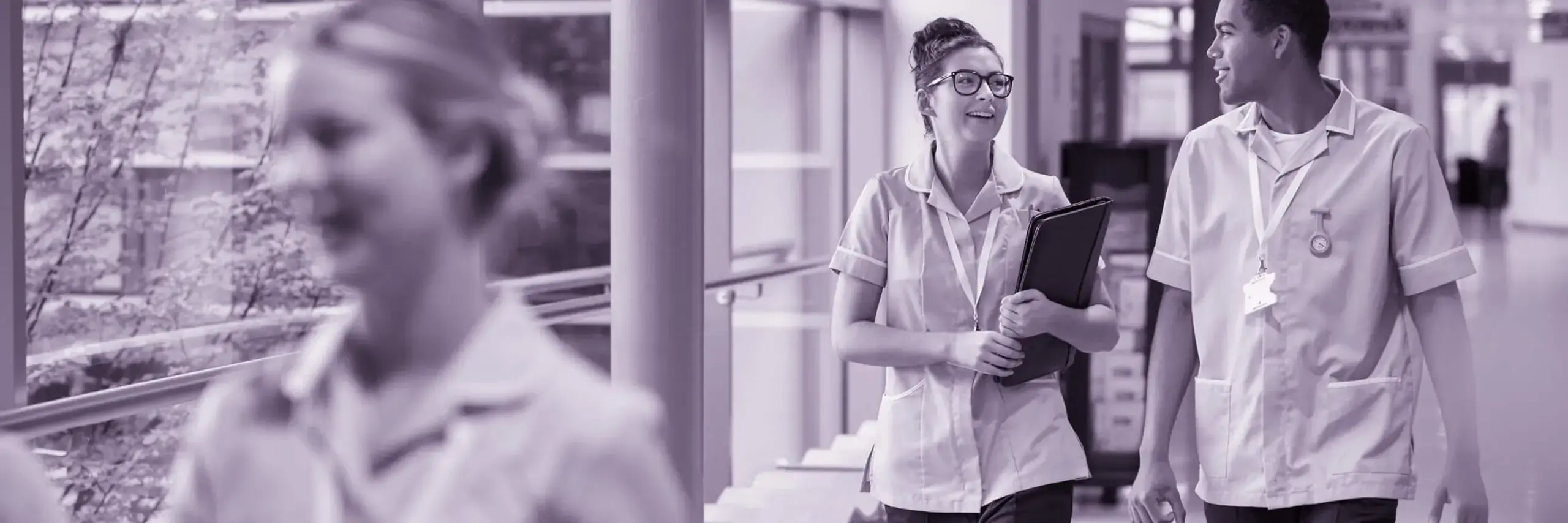Main content
The power of personal – how storytelling can influence change
10 Nov 2020
In this guest blog, Fraser Gilmore explores how storytelling can influence change, and how sharing one’s experience can make more abstract ideas like professional regulation more personal.
Every day in Scotland, and across the UK, hundreds of thousands of people access NHS services. What brought each person to the door of the hospital, clinic, GP’s surgery etc is unique to them, as is their experience after crossing the threshold.
Each and every person who has needed to access healthcare services has a story to tell. Understanding from their perspective what was good about their experience, what could have been improved and how this made them feel, is a powerful means of influencing change.
Telling your story – Care Opinion
There are many ways in which healthcare services receive feedback from patients across the different health authorities in the UK, both formal and informal. My focus will be the stories told by patients on Care Opinion.
For those who don’t know, Care Opinion is an independent not for profit social enterprise that runs a website of the same name, where people can share their experiences of health and care services. Whether authors share a positive or negative experience, they want to know that their story will make a difference. This could be to give credit where it is due, to offer suggestions, to talk about what could be changed or how this experience made them feel.
Care Opinion plays an important part in creating an open dialogue between people accessing services and the services themselves. The stories are sent to the right people in health services across the country who can make a difference, by reading, responding and being open to change. By actively engaging with authors through listening to what they have to say and acting upon it, shows authors and everyone else who reads the stories, the importance health services place on feedback from those who access their services.
The power of stories
There are over 400K stories on Care Opinion, easily searchable by condition, procedure or service. These stories have been read more than 10.8 million times and more than 100,000 people visit the site every week. In Scotland, over 97% of stories were responded to in 2019/20, meaning that regardless if the story was positive or negative, it received a response from the service it was about.
When someone chooses to tell their story, they are doing so from their point of view, and their motivations for doing so can be and are varied, but can include; to inform other patients, to praise a service or to improve the standards of healthcare service for everyone. But each story that has been proffered, talks to what it was like for them personally, and regardless of whether the experience was positive or negative, learning can happen from reading the story.
On this basis, a response has to come from a place of person-centredness. Talking to the experience of the person, thanking them for their story, apologising where it is needed and explaining what actions will be taken based on this.
From this interaction, patients have an anonymous and safe space where they can share honest feedback easily and without fear, services can receive the feedback and reply, and as it is public everyone can see how and where services are listening and changing in response.
Making professional regulation more personal
As the main goals of regulation in healthcare are to protect the public, maintain public confidence in healthcare professions, and declaring and upholding professional standards, you can see how feedback from patients about their healthcare experiences can play a big part. Utilising feedback as part of the process of learning and change, and upholding public confidence by actively engaging with patients.
Increasingly regulators are recognising the need for person-centred approaches to regulation – whether that person is the professional themselves, or someone raising a concern about a professional’s practice. Regulators are also recognising that workplace cultures may have important influence on the quality and safety of professional practice, in that some organisations and teams seem to have far better safety records than others.
There is a growing body of research suggesting that patient feedback, and specifically online feedback, may provide important information, not just about the quality of care, but also on organisational cultures (and indeed, the quality of responding online may also be a good indicator of culture).
Services using Care Opinion often tell us that one impact of our service is on culture, helping them to become more open to feedback and less defensive. At an individual level, some professionals have also used Care Opinion to collect patient feedback to support their learning or revalidation (and some universities now use Care Opinion in teaching health professionals in training).
Professional regulation does not exist within a static vacuum. Issues around laws, regulations, guidance, procedure and conduct etc need to and do develop over time based on the needs of the population it serves. There are many contributing factors that influence this change and development, and when this regulation is targeted to protect people, feedback from those people needs to play an important part. Where professionals engage with patients through feedback, they have the opportunity to participate in a very human interaction, where they and the service they work for can benefit from the wealth of experience that patients have to offer.
I am going to finish with a quote from one of our authors about their experience of sharing their story on Care Opinion and the response they received:
'I had nowhere else to tell my story. Really didn't expect a response but I did get one. That response was uplifting and felt as though someone was listening and I was not alone in my pain.'
If you would like to find out more about Care Opinion, you can go online at www.careopinion.org.uk
Fraser was one of the speakers at our online seminar on Candour and whistleblowing in the context of Covid-19.
We also encourage sharing experience of regulators and accredited registers with us to help inform our reviews.



